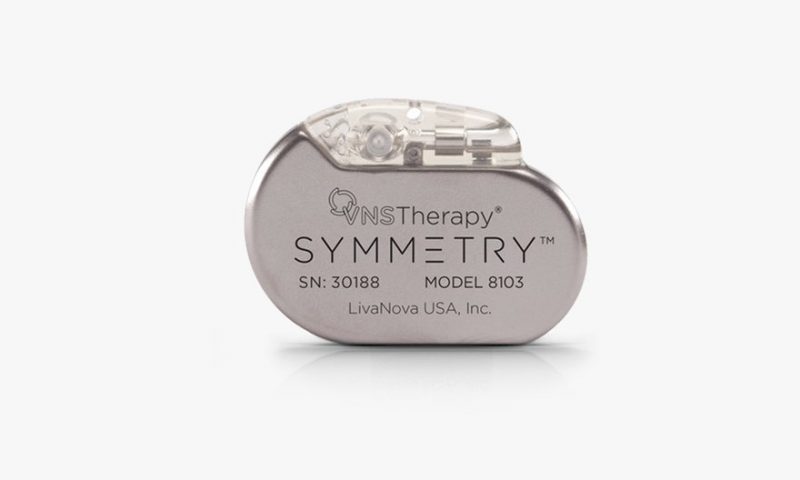With the launch of a new study, Verily and LivaNova are hoping to take the “treatment-resistant” out of treatment-resistant depression.
About a year after teaming up to form a research collaboration, the partners have officially kicked off their Uncover study, which will collect a range of daily mental and physical health data from patients who are using vagus nerve stimulation therapy to relieve the symptoms of major depressive disorder.
The project is a sub-study of LivaNova’s existing Recover study. That initiative was launched in the fall of 2019 to measure the effects of LivaNova’s Symmetry implantable nerve stimulation device on difficult-to-treat depression and bipolar depression.
The Symmetry device is implanted under the skin in the upper chest with an electrode leading to the left vagus nerve, which connects to the brain stem. It can stay there for years, regularly sending mild pulses to the nerve that have been shown to lessen symptoms of depression.
Clinical studies have shown that about two-thirds of people who used Symmetry for vagus nerve stimulation experienced significant improvements in their treatment-resistant depression symptoms, and nearly half of the device’s users either fully or almost fully recovered from the condition.
Though the Symmetry system’s efficacy has been proven in multiple studies and was approved by the FDA in September 2019, it isn’t covered by most insurance companies. The Recover study represents an effort to collect even more evidence of the Symmetry device’s effectiveness to persuade payers to cover its usage.
The study comprises up to 1,000 patients, recruited from a pool of 100 hospitals and medical centers across the U.S., who have found at least four different treatments to be unsuccessful at treating their long-lasting and/or recurring depression or bipolar depression.
Now, with Verily on board, the Uncover sub-study will ask up to 300 people already enrolled in the original study to use the Alphabet subsidiary’s health-tracking devices to provide a broader view of the Symmetry system’s effects on their overall well-being.
The participants, all of whom must be Android users, will use the Verily Study Watch wearable device to continuously measure pulse rate, activity levels, sleep quality and more. They’ll also be able to record voice memos on the Verily Mood App detailing their depressive episodes.
“These Verily tools will collect behavioral, environmental and physiological data from study participants, with the goal of painting a clearer picture of depressive episodes and the impact depression has on individuals’ lives over the course of the study,” said William Marks, M.D., Verily’s head of clinical science and neurology.
Though it first gained recognition as a seizure prevention tool, vagus nerve stimulation has proven to be an effective treatment for a range of health conditions. Bioelectric therapy developer ElectroCore, for example, has received FDA clearance for its hand-held nerve stimulating device to be used to treat and prevent cluster headaches and, more recently, to relieve asthma symptoms in patients with COVID-19.

